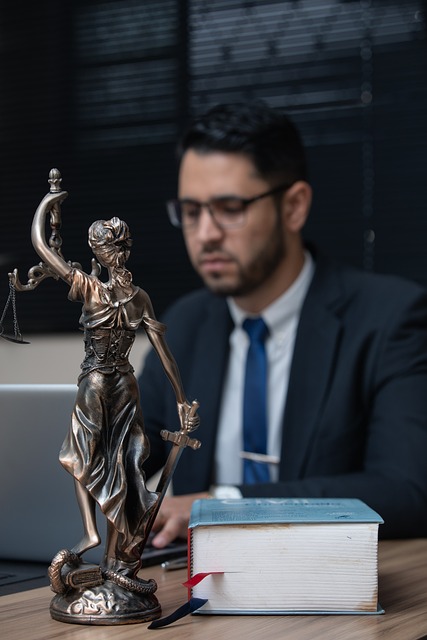In financial crime investigations, the burden of proof beyond a reasonable doubt significantly influences verdicts in complex white-collar cases like fraud and money laundering. Prosecutors must meticulously examine financial records, while skilled lawyers defend clients by scrutinizing evidence, challenging cases, and crafting robust strategies. Understanding this dynamic is vital for legal professionals to navigate these cases effectively and secure just outcomes, ensuring the integrity of the justice system.
In the intricate world of finance crime investigations, understanding the legal process is paramount. This article delves into the intricacies of ‘Finance Crime Probes’, offering a comprehensive glimpse into the legal framework. We explore the pivotal role of the ‘Burden of Proof’ and its profound impact on verdicts. Learn how this concept shapes case outcomes and discover effective strategies for investigation, helping to mitigate consequences. Uncover the significance of navigating this critical aspect in finance crime proceedings.
- Understanding Finance Crime Probes: A Glimpse into the Legal Process
- The Role of Burden of Proof: Definition and Significance
- Impact on Verdicts: How It Shapes the Outcome of Cases
- Strategies for Effective Investigation and Mitigating Consequences
Understanding Finance Crime Probes: A Glimpse into the Legal Process

In the realm of finance crime probes, understanding the legal process is pivotal for both accusers and defendants. These investigations, often involving complex white-collar offenses, require a meticulous unravelling of financial transactions and records. The primary goal is to ascertain whether a crime has been committed, with a particular focus on fraud, money laundering, or other financial misconducts. One critical aspect that significantly influences the outcome of these cases is the burden of proof.
The burden of proof rests heavily on prosecutors, who must present compelling evidence to secure a conviction. This includes demonstrating beyond a reasonable doubt that a defendant engaged in illicit financial activities. For his clients facing general criminal defense or white-collar defense charges, navigating this legal process requires skilled advocacy. Lawyers play a pivotal role in scrutinizing evidence, challenging the prosecution’s case, and presenting a robust defense strategy to safeguard their client’s interests.
The Role of Burden of Proof: Definition and Significance

In finance crime probes, the burden of proof plays a pivotal role, influencing the outcome of cases significantly. It refers to the legal obligation placed on prosecutors or plaintiffs to present substantial evidence supporting their claims. This concept is crucial as it ensures fairness in judicial processes, particularly in jury trials across the country. The onus of proving guilt beyond a reasonable doubt rests with the prosecution, which must convince the jury that the accused is guilty.
Understanding how burden of proof affects verdicts is essential, especially when dealing with complex financial cases involving corporate and individual clients. A well-defined burden of proof helps in distinguishing between facts and speculation, preventing convictions based on mere probabilities or unsubstantiated allegations. This, in turn, safeguards the rights of both the accused and the accuser, fostering a robust legal system that relies on concrete evidence rather than hearsay or circumstantial arguments.
Impact on Verdicts: How It Shapes the Outcome of Cases

The burden of proof is a fundamental aspect of any criminal case, and its impact on verdicts cannot be overstated. In finance crime probes, particularly in white-collar defense cases, this concept plays a pivotal role in shaping the outcome. The prosecution must provide compelling evidence to convince the jury beyond a reasonable doubt, which is a higher standard than simply a majority opinion. This stringent requirement ensures that accusations are rigorously scrutinized, fostering fairness and reducing the risk of wrongful convictions.
In many jury trials, the burden of proof influences strategic decisions for both prosecutors and defense attorneys. A well-prepared challenging defense can exploit gaps in evidence or inconsistencies in testimony, leading to winning outcomes for accused individuals. Conversely, a weak prosecution case might result in favorable verdicts, underscoring the importance of thorough investigation and presentation of facts. This dynamic interplay between proof and verdict underscores the critical role of legal professionals in navigating complex financial crimes.
Strategies for Effective Investigation and Mitigating Consequences

In finance crime probes, effective investigation strategies are paramount to ensuring justice and mitigating consequences for both victims and accused. One key factor that significantly influences the outcome of such cases is the burden of proof. Prosecutors must present compelling evidence that goes beyond reasonable doubt, addressing complex financial transactions and records with meticulous attention to detail. This demands a multi-faceted approach, leveraging advanced analytics, forensic accounting techniques, and robust data collection methods to unearth discrepancies and establish guilt or innocence.
Moreover, collaboration across the country between law enforcement agencies, regulatory bodies, and philanthropic and political communities is crucial in strengthening investigative capabilities. Streamlined information sharing enhances the speed and accuracy of probe operations, enabling more efficient prosecution strategies. Jury trials, as a cornerstone of democratic justice, require clear and concise presentations of evidence to secure verdicts that reflect the true burden of proof.
Finance crime probes require a meticulous understanding of legal processes, particularly the burden of proof, which significantly influences verdicts. This critical aspect ensures fairness and accuracy in judgments, shaping the consequences for all involved. By employing effective investigation strategies, professionals can navigate these complex cases, ultimately mitigating potential outcomes and upholding justice.






